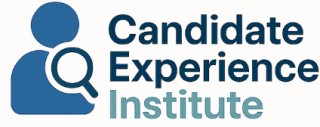Understanding Direct Hire
Exploring the Direct Hire Approach
In the realm of recruitment, the direct hire process is a straightforward method where a company seeks to fill a permanent position by hiring candidates directly. This approach is typically used when a company aims to build a long-term relationship with an employee, offering them a full-time, permanent hire position. The direct hire process involves the hiring company managing all aspects of the recruitment process, from sourcing and interviewing candidates to extending job offers and onboarding new employees.
One of the key benefits of direct hiring is the control it gives companies over the entire hiring process. By managing recruitment internally, organizations can ensure that the candidates they select align with their specific cultural and operational needs. This method also allows for a more personalized candidate experience, as the hiring team can tailor the interview process to reflect the company's values and expectations.
However, direct hiring is not without its challenges. The process can be time-consuming, requiring significant resources and effort from the company's HR team. Additionally, without the support of a staffing agency or recruitment agency, the company may face difficulties in reaching a wide pool of talent, especially for specialized or high-demand roles.
For companies considering this approach, it's essential to weigh the benefits of direct placement against the potential drawbacks. While direct hires can lead to a more cohesive team and a stronger alignment with company goals, it requires a robust internal recruiting infrastructure to be effective.
For more insights on enhancing the candidate experience through strategic recruitment methods, consider exploring inbound recruiting strategies.
The Role of Recruiters in Hiring
The Integral Role of Recruiters in the Hiring Process
Recruiters play a pivotal role in the hiring process, acting as intermediaries between candidates and companies. Their expertise in recruitment and talent acquisition is invaluable, especially when a company seeks to fill positions efficiently and effectively. Recruiters, often part of a staffing agency or a recruitment agency, leverage their networks and industry knowledge to match the right talent with the right job opportunities.
Recruiters can be particularly beneficial for companies looking to fill specialized roles or when they need to hire staffing for short-term or contract positions. They streamline the recruitment process, saving time for hiring managers by pre-screening candidates, conducting initial interviews, and ensuring that only the most qualified candidates are presented for consideration.
One of the primary benefits of using a recruiter is their ability to access a broader pool of candidates. Recruiters often have access to passive candidates who may not be actively seeking new opportunities but could be open to the right offer. This expands the talent pool beyond those who apply directly to job postings.
Moreover, recruiters are adept at understanding the nuances of both the job market and the specific needs of the hiring company. This expertise allows them to provide valuable insights and advice to both candidates and employers, ensuring a smoother hiring process. For companies, this means a more efficient path to finding the right permanent hire or contract hire.
For more insights on how recruiters enhance the candidate experience, consider exploring strategies such as inbound recruiting strategies, which can significantly improve the overall recruitment process.
Comparing Candidate Experiences
A Broader Perspective on Candidate Experience
When candidates are on the hunt for a new opportunity, their experience during the hiring process plays a critical role in shaping their perception of a potential employer. How this process unfolds can vary significantly between direct hires and those channeled through recruiters.
For those pursuing direct hires, the journey often begins with applying directly to the hiring company. This process typically involves communicating with the hiring manager and the company's HR team. Candidates may benefit from a direct understanding of the company's culture and the role they are applying for. The connection is often more personal and streamlined, with fewer intermediaries.
On the other hand, when a recruitment agency steps in, candidates experience a different dynamic. Recruitment agencies act as intermediaries between the candidate and the employer. This can often relieve candidates from the negotiation process and provide insight into various roles that are not publicly advertised. Recruiters from staffing agencies might also equip candidates with interview tips and provide feedback throughout the recruitment process.
Whether candidates are seeking permanent, full-time positions through direct inquiries or exploring contract hires via recruiters, each path presents its own set of challenges and advantages. From a long-term perspective, candidate satisfaction hinges on transparency, timely communication, and the perceived fairness of the process. In both direct hire and recruiter-led scenarios, ensuring a positive candidate experience remains paramount to attracting top talent.
Pros and Cons of Direct Hire
Advantages and Shortcomings of Going Direct
Choosing direct hire offers certain benefits, such as potentially saving time and resources in the hiring process. For hiring companies looking to bring in permanent employees, this route can streamline the job offer and acceptance process, as it lacks the intermediary step of engaging with a recruiting or staffing agency. Candidates directly applying to a company may feel a stronger connection to the organization from the outset, expecting smoother communication and a more personalized candidate experience. However, direct hiring does come with its own set of challenges. Without the support of a recruitment agency, hiring managers and their teams bear the full burden of identifying suitable candidates. This can stretch both time and resources, especially in organizations without a dedicated recruiting team. Additionally, the interview process can sometimes be longer, as hiring managers may need to allocate significant time to assess each potential permanent hire thoroughly. Furthermore, organizations might miss out on specialized talent that's often available through staffing agencies equipped with robust networks and databases. In contrast, a staffing agency can often provide a wide pool of pre-screened candidates, thus potentially reducing the time it takes to fill a vacancy. For candidates, this could mean a faster entry into a company requiring their specific skills, even if it's just for a temporary contract or short-term solution. On the downside, direct hires are typically not advised for immediate or contract positions unless the individual is already known to the hiring company. Overall, while both approaches have their merits and limitations, understanding the specific needs of your organization and the type of role being filled is crucial for making the most effective choice in the employment process.Pros and Cons of Using a Recruiter
Advantages and Disadvantages of Leveraging Recruiters
Engaging with recruiters or staffing agencies is a popular choice for many companies navigating the hiring process. These professionals play a vital role in connecting potential candidates with suitable positions, yet there are still pros and cons to consider when deciding whether to enlist their services.
Benefits of Using a Recruiter:
- Time Efficiency: Recruiters can significantly streamline the recruitment process. By tapping into an established network of candidates, they can quickly identify talent that matches a company's needs, saving hiring managers both time and effort.
- Access to a Broader Talent Pool: Staffing agencies often have access to a wider range of candidates, including passive candidates who may not be actively applying directly for jobs but would be open to great opportunities.
- Expertise and Specialization: Recruiters often specialize in certain industries or roles, offering valuable insights into current market trends and candidate expectations, which can enhance the quality of hires.
- Support and Networking: A recruitment agency provides additional support during the interview process and often follows-up post-placement, ensuring both parties are satisfied with the arrangement.
Drawbacks of Relying on a Recruiter:
- Cost Implications: Utilizing recruitment services can be more expensive than managing the process internally due to fees charged by the staffing agency, particularly for permanent hire arrangements.
- Lack of Direct Interaction: When recruiters are the primary point of contact, there may be less direct communication between candidates and the hiring company, potentially impacting relationship building and cultural understanding.
- Potential Misalignment: Occasionally, the interests of the recruiter may not perfectly align with the hiring manager's objectives. Ensuring clear communication and setting expectations from the start is critical.
Choosing whether to integrate recruiters into your recruiting process boils down to weighing these factors and determining what best aligns with your company’s staffing goals and resources. For those seeking quick hires and specialized talent, a recruiter can be a beneficial asset in the hiring toolkit.
Choosing the Right Path
Considering Your Hiring Goals and Company Needs
When choosing between direct hire and utilizing a recruiter, it's essential to align your decision with the specific goals and immediate needs of your company. Consider how each hiring path aligns with your team’s objectives, the volume of positions you need to fill, and the type of roles you are recruiting for, be it permanent or temporary contracts.
Assessing Candidate Engagement
Reflect on how important it is for your company to maintain the full control of the recruitment process. A direct hiring approach can offer you more control but might demand more manpower and time. On the other hand, a staffing agency or recruiter may provide access to a broader talent pool, assisting in engaging candidates more effectively than an internal hiring manager might.
Evaluating Costs and Resources
Cost efficiency also plays a pivotal role in deciding. Direct placements can reduce upfront expenses in certain scenarios, but using a staffing agency could minimize long-term costs related to recruitment processes and turnover by ensuring you're hiring the right talent.
Understanding Industry Dynamics
In fast-paced industries, a recruiter or recruitment agency’s extensive network can be valuable to secure talent quickly, especially for industries experiencing rapid changes or staffing shortages. For stable sectors, direct hiring may be more viable if your internal team has established successful recruitment strategies.
Making the Choice for Your Company's Future
Ultimately, choosing between direct hire and using a recruiter depends on your company's specific context. Consider the long-term impact, the scalability of recruitment efforts, and how each method influences your company culture and candidate experience. Analyzing these factors will guide you to the most suitable path that aligns with your strategic staffing goals.













